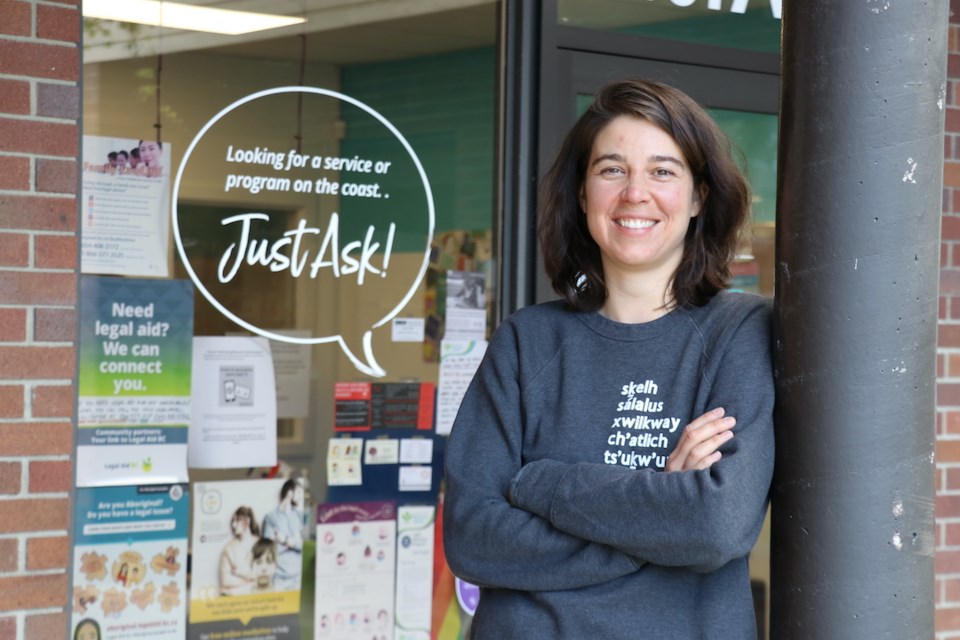Q: Can you help me apply for Person with Disabilities status?
A: Yes. The Resource Centre’s Legal Advocate, Ken Carson, supports clients who have a Person with Disabilities (PWD) designation or who wish to apply. For more information, I chatted with Ken. Here is some of our conversation:
Who can apply? The definition of who can apply is provided by the province’s Employment and Assistance for Persons with Disabilities (EAPWD) Act. It’s for people with a severe mental or physical impairment that will last more than two years, and that causes significant restrictions on a person’s lifestyle. This is the definition in my words. On the province’s website, there is a detailed definition.
I see people applying for this status with all kinds of conditions. These include brain injuries, epilepsy, a psychiatric disorder, chronic arthritis, multiple sclerosis, chronic depression and anxiety, or long-term mobility restrictions. These are just a few of the examples.
What age do you need to be to receive disability income? With a PWD designation, you can receive a disability income between the ages of 18 and 65 (after that you can retain your designation, but the income switches over to “old age pension” payments which can include CPP, OAS and GIS.)
How can an advocate help? Navigating the process of getting a PWD designation can be a challenge. It’s a lengthy application and many people are not comfortable navigating this on their own. My job is to help translate the disability the client is experiencing into medical evidence that will fit the definition of a person with a disability. I interview the person so I get a non-medical idea of how they perceive their disability, so I can then give them an informed opinion about whether I think they should apply. Once whether to apply or not is decided, I can help a client through the process.
What are the most common challenges you see? The biggest challenge in getting PWD is the legislation that requires us to prove that a client has a disability that will last at least two years and that is “significantly restricting.” The doctor’s report is crucial to proving this. When a client and I contact their doctor to request that they fill out the required assessment needed for the application, I will often include a letter to inform the doctor of how critical their involvement is in the process. However, in my opinion, our public health system is there for diagnosing and treating illnesses, it is not set up to provide medical “evidence” for various ministries. This is a major systemic barrier. The Ministry of Social Development and Poverty Reduction does not pay for clients to have assessments. (In contrast, an organization like WorkSafeBC contracts out their medical assessments, that is, they pay to have them done for clients.) My clients are forced to rely on the public system, that is, getting a doctor to fill out the necessary forms. And the quality of assessment you get may depend on a doctor’s ability to deal with the form in a busy practice when doctors are already coping with everything else in this healthcare crisis.
Can you speak to challenging situations you’ve seen? Sometimes someone receiving a disability income will have their file “audited.” MSDPR will threaten to cut off a person’s funding if they can’t find the required documentation during the auditing process. In some cases, what is missing can be as simple as a receipt or two. I can support a client in resolving issues like this. This is also why it’s important to keep your files organized when you are applying for PWD status.
Another challenge: If you are someone who is planning on working part-time with your disability, then it matters if your disability is funded by the province or by both the province and the federal government. The federal government ceiling for earnings is $6,000 per year, whereas the province’s ceiling for earnings is $15, 000.
Why would the governments be sharing the costs? A single PWD client in the province, completely supported by the province, gets $1,378/month. If you have dependants, you may receive more. But if that client qualifies for a “Canada Pension Plan Disability” (CPP-D) income from the federal government, then the federal government can now pick up the tab for some of these earnings.
How does this cost-sharing affect the client? A client’s earnings don’t change, but the body paying them does. Clients receiving PWD benefits often come with questions about the letters saying they must apply for CPP-D benefits. It can be confusing.
All of this can negatively influence someone’s having a reliable cash flow. For instance, say they had planned to earn more than $6,000 in a year because they were initially on PWD only. But they have since received a letter saying they must apply for CPP-D. Now, with their higher than $6,000 earnings, they will wind up getting bumped off of CPP-D benefits and having to wait for the MSDPR (the provincial government) to catch up with this fact and reinstate the balance of their benefits that the federal government had been paying for. This is the type of convoluted situation I can help people navigate. Sometimes these letters can sound quite intimidating; the Resource Centre has learned that the government is creating a committee to work to change the letters so they are less threatening.
Note: I’ll have more on PWD in future columns.
To book an appointment to chat with Legal Advocate Ken Carson about PWD, call 604-989-5771 or email [email protected].
Angie Theilmann is an information and referral specialist at the Sunshine Coast Resource Centre, your community information hub. The Resource Centre is open Monday to Thursday 10 a.m. to 2 p.m. Appointments are recommended to be sure we are available to help you. Note: on some days, we can book clients after 2pm. Contact us: [email protected] or 604-885-4088.



